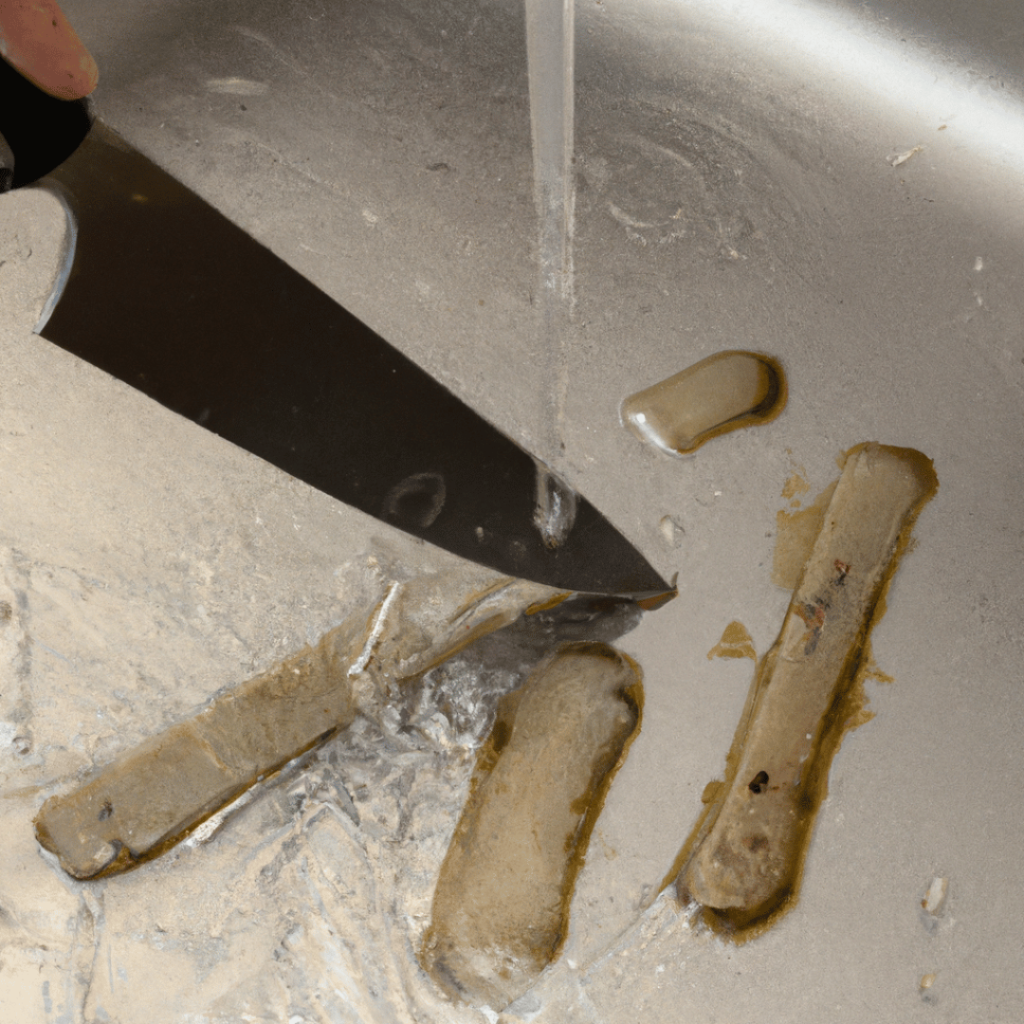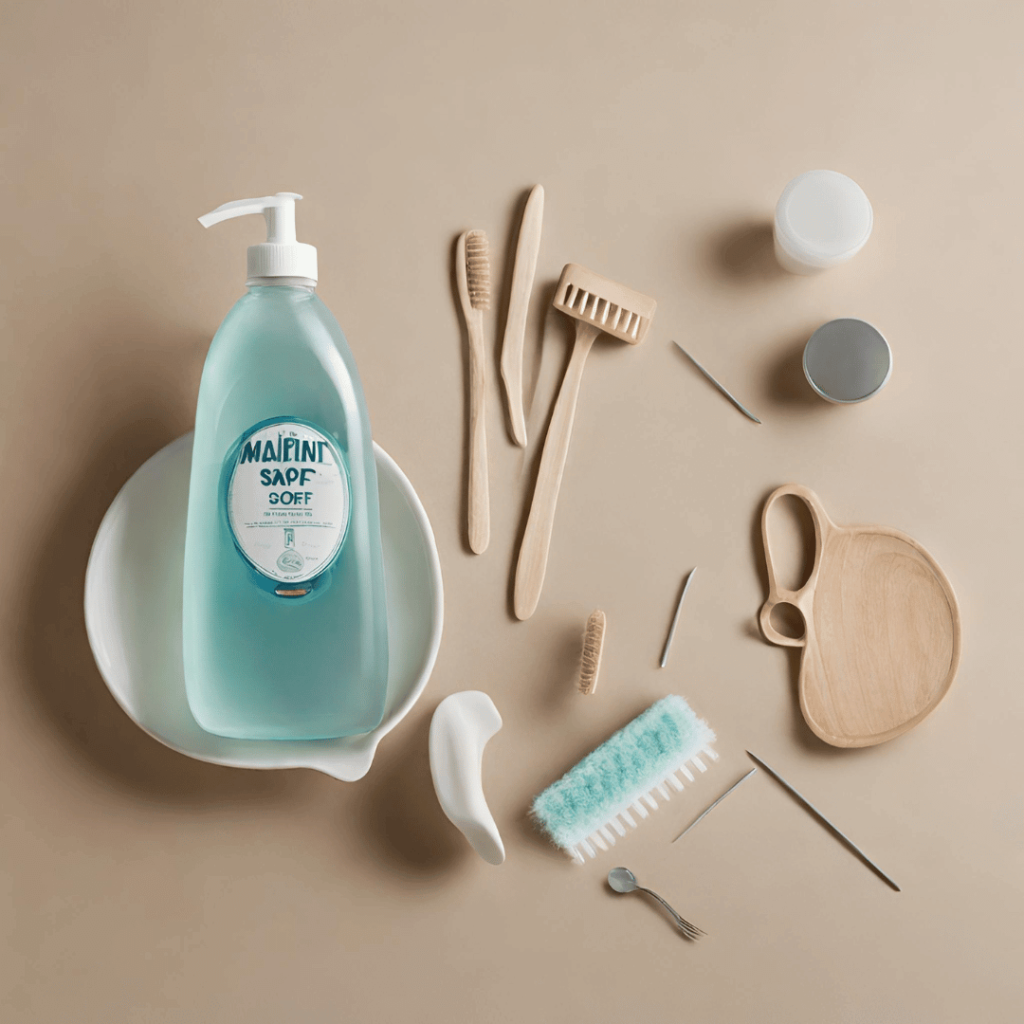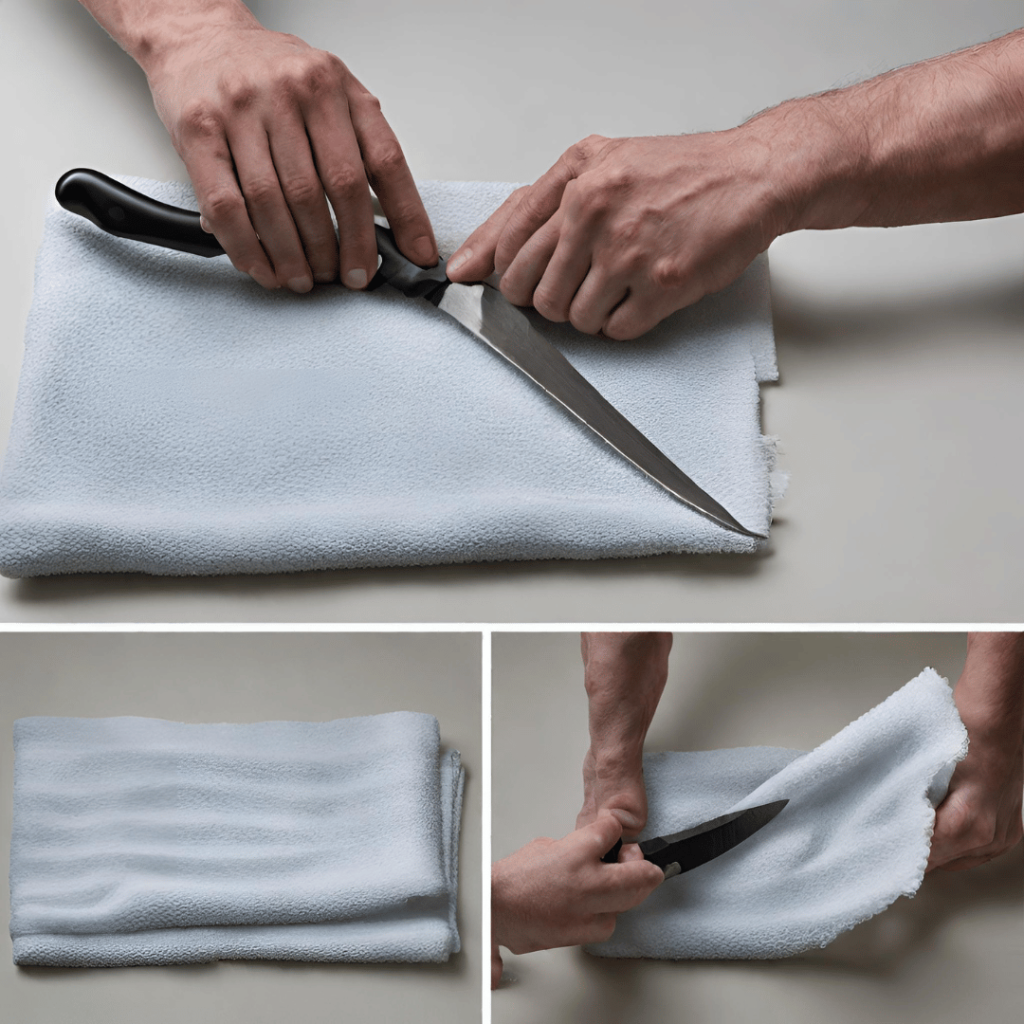There’s a certain mystique surrounding Damascus steel knives. Their mesmerizing patterns aren’t just beautiful – they’re a testament to a rich history of forging excellence. But owning a Damascus steel knife comes with a responsibility: proper care. Fear not, fellow knife enthusiasts! This guide will unveil the secrets to cleaning your Damascus steel knife like a pro, ensuring it remains a stunning and functional culinary companion for years to come.
The Allure of Damascus Steel

A Legacy Forged in Fire:
Damascus steel, born from ancient techniques, is a marvel of metalworking. Layers of high and low carbon steel are forged together, resulting in a blade renowned for its exceptional sharpness, durability, and of course, that captivating visual tapestry.
But here’s the thing: while Damascus steel is a force to be reckoned with in the kitchen, it requires a slightly different approach to cleaning compared to your everyday stainless steel knives.
Unveiling the Layers: Understanding Damascus Steel Care
The Delicate Dance: Balancing Performance and Maintenance:
The secret to caring for Damascus steel lies in understanding its unique properties. While the layered construction enhances strength and sharpness, it also creates tiny crevices where moisture and food particles can get trapped. Left unattended, this can lead to rust and dulling.
Why Damascus Steel Needs Special Attention:
Unlike some stainless steel knives, Damascus steel can be more prone to rust if not properly cared for. The presence of high carbon steel makes it slightly more susceptible. That’s why a gentle yet effective cleaning routine is essential.
Clean Damascus steel kitchen knife: Essential Tools

Must-Have Items for Optimal Care: Now, let’s gather your weapons (well, cleaning supplies) for this battle against grime! Here’s what you’ll need:
- Gentle Warriors: Soft sponges or dishcloths are your first line of defense. Avoid abrasive scrubbers that could scratch the delicate surface.
- Polishing Powerhouses: Microfiber cloths are fantastic for final polishing and buffing, leaving your blade gleaming.
- Natural Wonders: Food-grade mineral oil provides a protective layer to prevent rust and enhance the blade’s visual appeal (optional).
With these tools in hand, you’re ready to embark on the cleansing ritual!
The Cleansing Ritual: A Step-by-Step Guide
Prepping for Perfection: What to Do Before You Begin:
- Clear the Battlefield: Wash your hands thoroughly before handling your knife. This ensures you’re not transferring any bacteria to the blade.
- Gather Your Troops: Assemble your cleaning supplies – the soft sponge, microfiber cloth, and dish soap (if using).
The Cleansing Dance: Washing Your Damascus Steel Knife:
- Warm Up the Water: Fill a basin with warm water. Avoid using boiling hot water, as it can damage the handle.
- The Gentle Lather: Add a few drops of mild dish soap to the water and create a gentle lather.
- Dance of the Sponge: Dip the soft sponge into the soapy water and gently cleanse the entire blade, including the handle (if it’s not made of wood). Pay extra attention to the areas between the Damascus steel layers, but avoid applying excessive pressure.
- Rinsing the Foe: Rinse the knife thoroughly under clean running water to remove all soap residue.
Drying with Care: Removing Excess Moisture:

The Banishing of Moisture: This is crucial! Leaving water droplets on the blade can lead to rust. Use the clean microfiber cloth to meticulously dry the entire knife, especially focusing on the crevices between the layers.
Keeping It Gleaming: Polishing and Oil Application (Optional):
- A Touch of Shine : If you desire an extra layer of shine, buff the blade gently with a dry microfiber cloth.
- Natural Protection : For an extra layer of protection against rust and to enhance the visual appeal of the Damascus pattern, apply a thin coat of food-grade mineral oil using a clean microfiber cloth. Wipe off any excess oil to avoid a greasy residue.
Remember: This oiling step is optional, but it’s a good practice, especially if you don’t use your Damascus steel knife frequently.
Conclusion: A Shining Example of Care
With a little TLC (tender loving care), your Damascus steel knife can become a cherished heirloom, passed down through generations. By following these simple cleaning and maintenance practices, you’ll ensure its captivating beauty and exceptional performance endure for years to come. Remember, a clean and well-maintained Damascus steel knife isn’t just a beautiful kitchen tool – it’s a testament to your appreciation for quality and craftsmanship. Now, go forth and conquer your culinary creations with confidence, knowing your Damascus steel companion is ready to tackle any chopping, slicing, or dicing challenge with ease!
FAQ’S
Does Damascus Steel need to be Oiled?
It can benefit from occasional oiling (food-grade mineral oil) for added rust protection and visual enhancement, but it’s not strictly necessary for basic cleaning.
Can you use olive oil on Damascus steel?
While olive oil can provide temporary protection, it’s not ideal for Damascus steel due to potential rancidity.
What oil to use on damascus steel?
Use food-grade mineral oil for a protective layer on your Damascus steel knife
How often should I clean my Damascus steel knife?
After each use, especially if you’ve cut acidic or corrosive foods. This removes any food particles that could potentially cause rust.
Can I use regular dish soap to clean my Damascus steel knife?
Yes, mild dish soap diluted in warm water is perfectly acceptable.
